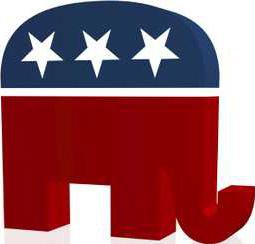![]() The GOP takeover of the Senate could shake up higher education policy, analysts say, while results in state elections offer more of a mixed bag, with teacher unions prevailing in California, while the GOP retained two hotly contested governorships in Wisconsin and Florida, where education issues played a role.
The GOP takeover of the Senate could shake up higher education policy, analysts say, while results in state elections offer more of a mixed bag, with teacher unions prevailing in California, while the GOP retained two hotly contested governorships in Wisconsin and Florida, where education issues played a role.
One governorship that did change hands over education was in Pennsylvania, where the Republican incumbent Tom Corbett was upset by Democrat Tom Wolf, who sharply criticized Corbett's aggressive slashing of higher education spending in the aftermath of the Great Recession.
The candidates disputed the numbers and the facts, the Daily Pennsylvanian reported, but voters reported that education was the top issue in this race. Corbett raised hackles early on with a proposal to slash spending on state universities by a massive 30 percent.
On the national level, the new Republican Senate will be run by Sen. Lamar Alexander, a former university president and U.S. secretary of education. But his will not be the only voice in the mix.
Andrew Kelly, who directs higher education research at the American Enterprise Institute, told Inside Higher Ed that the Republican majority could embrace “some of the more imaginative ideas out there” by those Republicans, “who see student debt and college affordability as a campaign issue that families, their constituents are going to care about for a long time coming.”
He referred specifically to proposals by Sens. Mike Lee and Marco Rubio and Rep. Paul Ryan to break up the current accreditation system that, they argue, is stultifying higher education.
But Kelly thinks Alexander is less likely to go there. “Alexander doesn’t seem as skeptical of the accreditation system as some other Republican lawmakers, so I don’t know that those would be at the top of his list,” Kelly said. “But it’s a big question mark.”
"My principal goal in higher education is to deregulate it," Alexander, the incoming Senate Education Committee chairman, told the Chronicle of Higher Education.
But Alexander's agenda is sweeping, the Chronicle adds. "As the presumptive chair of the Senate committee that oversees education, he would control the reauthorization of the Higher Education Act, the major law governing student aid. Already, he’s drafted legislation to shrink the Free Application for Federal Student Aid, or Fafsa, and to reduce the overall number of student-aid programs. He’s formed a commission to identify redundant regulations, and he's talked of "starting from scratch" on the reauthorization bill."
On K-12 issues, school choice advocate Michael Petrilli was pleased with the Democratic Party's success in Rhode Island, which, he writes, "just elected a pro-education reform, pro-pension reform Democrat as governor and a bona fide charter school hero as lieutenant governor. All while voters in Providence rejected a union-backed convicted felon in favor of a charter supporter." Petrelli is president of the Thomas B. Fordham Institute, a Washington, D.C., based education reform think tank.
Petrilli would be less pleased with California, where a strong opponent of teacher unions and proponent of charters was defeated by incumbent Tom Torlakson, a former teacher who was closely allied with the unions in a $30 million dogfight for state schools chief.
"Much of the debate centered on Vergara v. California, a lawsuit alleging that the state’s teacher tenure and dismissal laws protect bad teachers and disproportionately deprive low-income and minority students of a quality education," the Sacramento Bee reported, noting that the challenger, Marshall Tuck, "built his campaign on the case, galvanizing supporters after a judge declared the policies unconstitutional in June. He wielded the ruling against Torlakson like a bludgeon, spending most of his public appearances urging California to reject the “status quo” and get behind the decision."
Email: eschulzke@desnews.com





